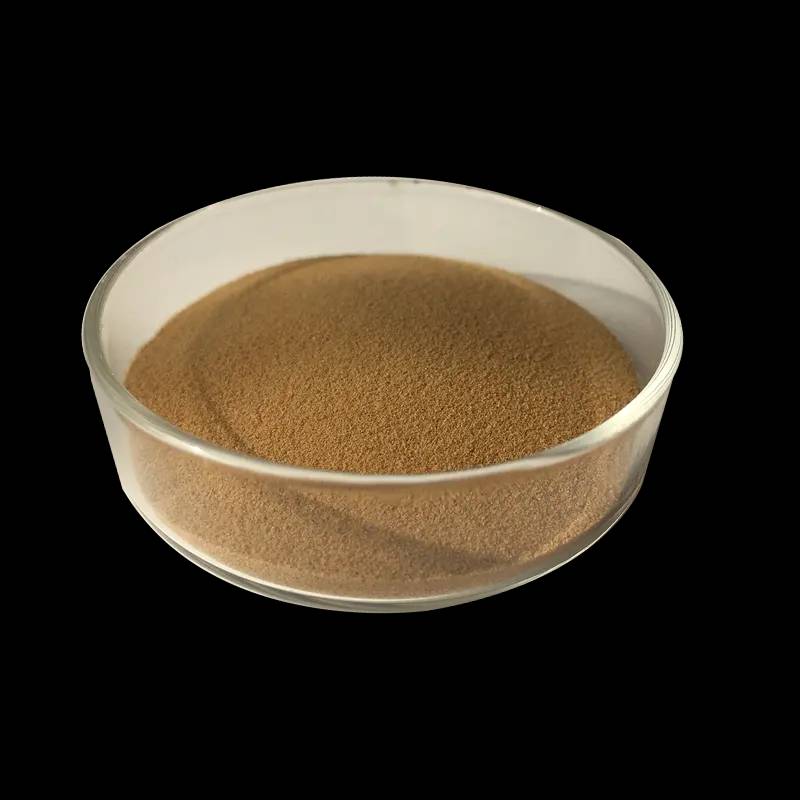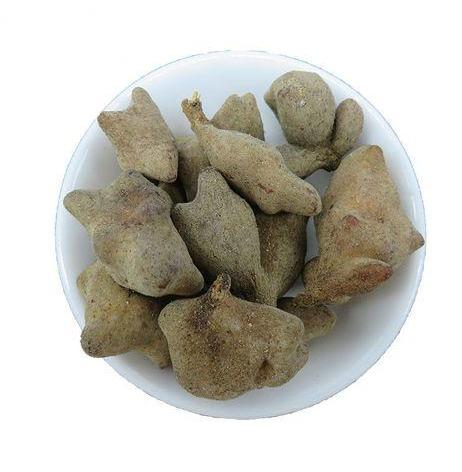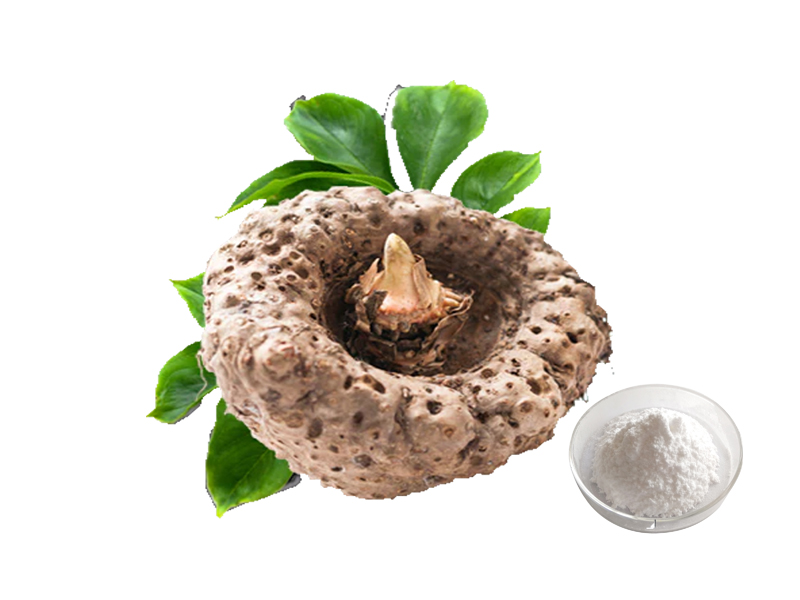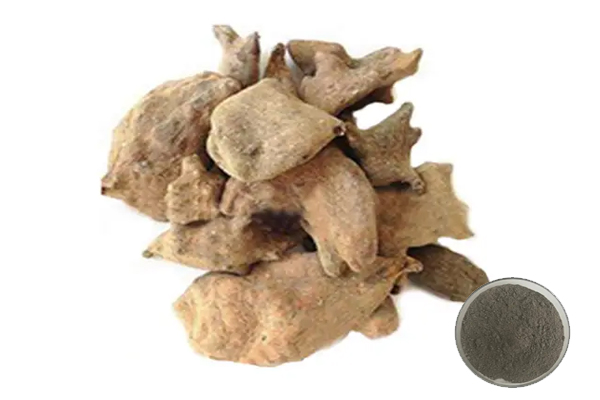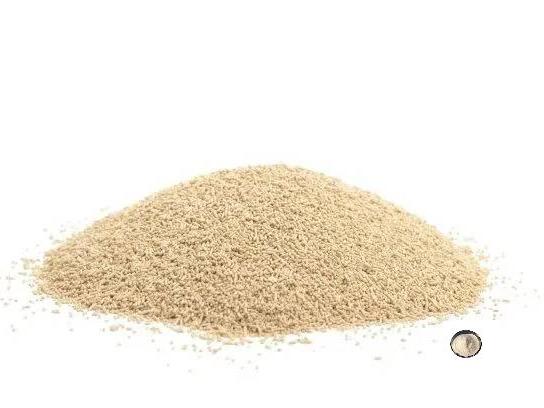40% d’acide ellagique en poudre par HPLC
Nom de produit :Ellagic Acid Powder
Dosage :40%,90%
Méthode d’essai :HPLC
Apparence: Poudre gris clair
Résidu de Pesticide: conforme à la norme (ce) No 396/2005
- Description Description
- Fiche technique
- Certificat de formation
-
Qu’est-ce que la poudre d’acide ellagique?
Acide ellagique, also known as gallic acid, is a plant polyphenol that is a dimerized derivative of gallic acid....... Ellagic acid is found in a wide variety of fruits and nuts, such as raspberries, pomegranates, strawberries, walnuts, and lingonberries. Naturally occurring ellagic acid is mostly found in nature in condensed forms (e.g. ellagitannins/glycosides, etc.). It is also present in the free form in the fruits of many plants, and its large-scale production can be achieved by hydrolysis of tannins.
Green Spring Technology propose une poudre d’acide ellagique dérivée de galle, qui peut être personnalisée dans une variété de tailles et avec une teneur maximale de 90%. De la matière première à la poudre d’acide ellagique, le processus de production entier peut être contrôlé et tracé. Green Spring surveille strictement les matières premières pour les résidus de pesticides, les résidus de solvants et divers polluants conformément à la pharmacopée européenne, à la pharmacopée des États-Unis, à la pharmacopée japonaise et à d’autres normes internationales. Nous pouvons fournir des rapports des essais faisant autorité de tiers.
Green Spring Technology is a leading biotechnology company in China, established in 2000. It has been dedicated to the research, development, and supply of effective natural ingredients. Its products are primarily used in dietary supplements, nutritional products, cosmetics, and other applications. The company has a comprehensive quality management system in place, strictly adhering to quality standards such as ISO and HACCP to organise production.
Green Spring Technology has obtained multiple certifications, including Halal, Kosher, COSMOS, BRC, IFS, FDA, ISO 9001, ISO 22000, EU Organic, and USDA Organic. It can provide authoritative third-party testing reports.
Spécification:
Nom du produit
Poudre d’acide ellagique
Nom Latin
Galla Chinensis
CAS non.
476-66-4
Source:
Gall
Ingrédients actifs
Acide ellagique
analyse
40%,90%
Méthode d’essai
HPLC/HPLC
apparence
Poudre gris clair
Résidus de pesticides
Conforme à la norme (ce) n ° 396/2005
Règlements:
Il est conforme à la réglementation de l’ue.
Learn More About Our Comprehensive Standardized Pomegranate Peel Extract Ellagic Acid Powder Solution.
Vous cherchez un devis?Benefits:
Antioxidant
Ellagic acid has a catechol-type phenolic hydroxyl group, which, upon hydrogen abstraction, forms an intramolecular hydrogen bond with another phenolic hydroxyl group, resulting in an o-benzoquinone resonance structure that can make phenoxy radicals more stable. In addition, ellagic acid can prevent the production of free radicals through complexation with metal ions. The chemical properties of ellagic acid give it the ability to quench lipid radicals, thus interrupting the chain reaction of lipid oxidation and exhibiting strong antioxidant activity.
Anti-Aging
Ellagic acid and its derivatives have been shown to strengthen the dermal-epidermal junction by increasing the proportion of type VII collagen in keratinocytes and fibroblasts. This reduces wrinkles, firms the skin, regulates skin texture and slows down skin ageing. Ellagic acid can effectively promote the newborn of skin elastin fibres, protect against the degradation of elastin fibre proteins, especially reduce the skin tissue damage caused by prolonged or frequent radiation and ultraviolet irradiation in sunlight, and slow down photoaging.
Sun Protection
Ellagic acid was subjected to UV scanning and the results showed that ellagic acid absorbed in all UV regions. In particular, there was a strong absorption at 220nm-300nm, indicating that ellagic acid has a strong absorption of UV. Adding it to cosmetics can prevent the skin from being exposed to too much UV light and reduce the degree of tanning and damage to the skin.
Moisturising
The polyol contained in the ellagic acid molecule can absorb moisture in the air and keep the moisture on the skin surface, so it can also be used as a humectant added to cosmetics.
Antibacterial
Ellagic acid has a very good inhibitory effect on a wide range of bacteria and germs, protecting wounds from bacterial invasion, preventing infections, and inhibiting ulcers. At the same time, ellagic acid and some ellagitannins show inhibitory properties against human immunodeficiency virus, reverse transcriptase of bird's adult myeloma virus (AMV), and alpha one-cell and beta-cell DNA polymerases. The mechanism of action of ellagic acid differs from that of antimicrobials, which such as mucins or persistent fungicide A inhibit DNA polymerase non-specifically, whereas the antiviral activity of ellagic acid and ellagitannins may be due to their inhibition of cellular adsorption of HIV, and the same may be true for inhibition of reverse transcriptase.
Whitening
Ellagic acid is a super antioxidant used in skin whitening to inhibit tyrosinase activity and block melanin production. It has whitening and lightening effects and is especially useful for repairing skin after sun exposure. If you use products with ellagic acid in a state of skin damage and irritation, you can prevent your skin from darkening after sun exposure.
Applications:
In the Food Field:
Antioxidants in food play a role in inhibiting oxidation reactions, can extend the shelf life of food, and help to maintain the colour, aroma, and taste of food. Ellagic acid powder, as a natural antioxidant, can be widely used in meat products, fruit and vegetable products, and other types of food to preserve freshness.
In Cosmetics:
Ellagic acid is one of the most effective skin-whitening ingredients recognized by dermatologists. It can be used to whiten the skin, inhibit tyrosinase activity, and block melanin production, which has a whitening and lightening effect. In addition, ellagic acid protects the skin from external damage, blocks tyrosinase activity, inhibits melanin production, and has antioxidant properties. Ellagic acid powders are often used as skin astringents, antibacterial agents, and antioxidants. Ellagitannins shrink pores, improve skin elasticity and radiance, and have antimicrobial properties that can effectively prevent and treat acne.
-
Get Your Free COA
-
Télécharger le document
Cosmos Green Spring Technology
Télécharger le documentHalal Green Spring Technology
Télécharger le documentKosher Green Spring Technology


 Anglais
Anglais français
français espagnol
espagnol russe
russe coréen
coréen japonais
japonais



